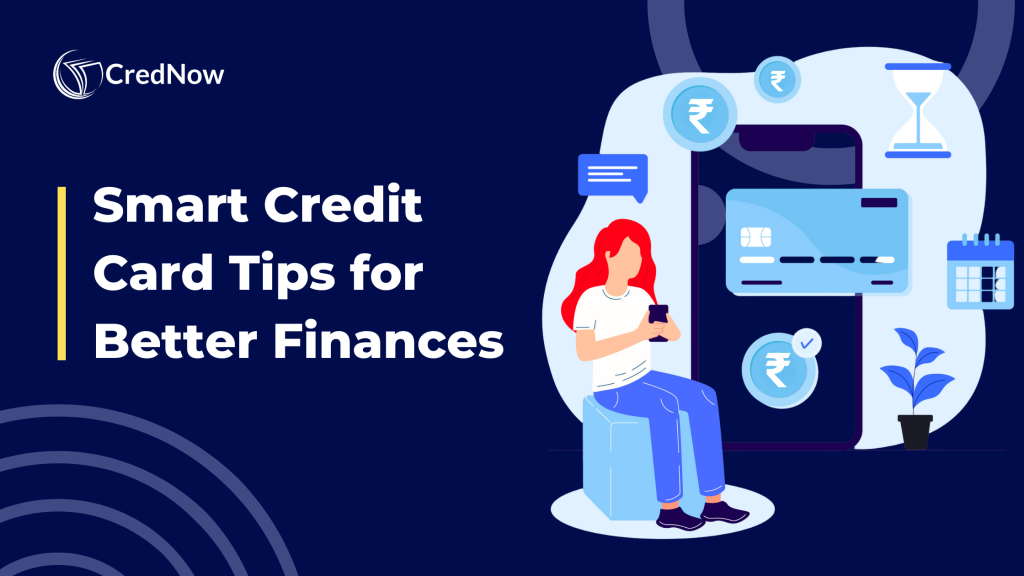Credit cards are powerful financial tools that can either build your creditworthiness or lead to debt if not managed properly. Whether you’re a seasoned cardholder or considering your first application, we’re here to help you navigate the world of credit with confidence. From boosting your credit score to funding dream vacations, the right card can be your ticket to financial success. To help you navigate the world of credit cards efficiently, here are some expert tips to use a credit card wisely. Follow these guidelines to ensure you make the most of your credit card while avoiding common pitfalls.
1. Timely Payments: The Golden Rule
Paying your credit card bill on time is crucial. Late payments not only incur hefty fees but also negatively impact your credit score. Set up reminders or automate your payments to avoid missing due dates. Timely payments reflect positively on your credit report and help you maintain a healthy credit score.
2. Get the Right Card: Choose a Rewarding Credit Card
Selecting a credit card that suits your lifestyle and spending habits can make a significant difference. Whether you prefer travel rewards, cashback, or low-interest rates, there is a card for every need. Compare various options and read the fine print to ensure you’re getting the best deal.
3. Minimize Debt: Pay More Than the Minimum
Always aim to pay more than the minimum payment. Paying only the minimum amount prolongs your debt and increases the interest you’ll pay over time. Whenever possible, pay your balance in full to avoid interest charges.
4. Never Exhaust Your Credit Limit
Using your entire credit limit can negatively affect your credit score. Aim to keep your credit utilization ratio (the amount of credit you use compared to your credit limit) below 30%. This shows lenders that you’re a responsible borrower.
5. Compare: Shop Around for Better Cards
Before settling on a credit card, compare different cards’ features, benefits, fees, and interest rates. Use comparison tools and read reviews to find the card that best suits your financial needs and spending habits.
6. Set a Budget: Your Financial Roadmap
It’s easy to overspend with a credit card. Set a budget for your credit card usage each month and stick to it. This will help you avoid unnecessary debt and manage your finances better.
7. Examine Your Bills: It Pays Off
Review your credit card statements regularly to catch any unauthorized charges or mistakes. Monitoring your bills helps you stay on top of your spending and ensures you’re not being overcharged.
Must Read: Master Your Credit Score and Boost Your Financial Health
8. Avoid Cash Advances and Cash Withdrawals
Cash advances from credit cards come with high fees and interest rates. Avoid using your credit card for cash withdrawals unless it’s an emergency. Instead, use a debit card or cash for your day-to-day expenses.
9. Review Your Credit Card Spends
Regularly reviewing your credit card spending can help you identify areas where you can cut back. It also ensures you stay within your budget and helps you plan future expenses more effectively.
10. Buy at the Right Time
Plan your purchases to take advantage of your credit card’s billing cycle. For example, make large purchases right after your statement closes to maximize the interest-free period. This gives you more time to pay off the balance without incurring interest.
11. Automate Your Credit Card Payments: Set It and Forget It
Setting up automatic payments for your credit card bill can help you avoid late fees and interest charges. Make sure there’s enough money in your account to cover the payments to avoid overdraft fees.
12. Take a Pause: Think Before Buying
Credit cards can make it tempting to buy on impulse. To avoid this, think twice before making a purchase and ask yourself if it’s something you need or if it fits within your budget.
13. Watch Out for Credit Card Fees
Understand the various fees associated with your credit card, such as annual fees, late payment fees, and foreign transaction fees. Avoiding unnecessary fees can save you money and keep your finances in check.
14. Limit the Number of Cards
Having multiple credit cards can be difficult to manage and may lead to overspending. Limit the number of cards you have to a manageable number and use them responsibly.
15. Keep Your Card Safe
Protect your credit card information to prevent unauthorized use. Keep your card details confidential, use secure websites for online shopping, and regularly monitor your account for any suspicious activity.
Boost Your Credit Score to Get Your Dream car
In Conclusion
Using a credit card wisely requires discipline and careful planning. By following these tips, you can enjoy the benefits of credit cards without falling into debt. Remember, a credit card is a tool to enhance your financial health, not a source of unlimited funds. Use it responsibly, and it can be a powerful ally in achieving your financial goals. For more insights and tips on managing your finances, stay tuned to our blog.
Frequently Asked Questions (FAQs):
1. How can I improve my credit score with a credit card?
To improve your credit score with a credit card, make timely payments, keep your credit utilization ratio below 30%, avoid opening multiple new accounts at once, and regularly review your credit report for errors. Paying off your balance in full each month can also boost your score over time.
2. What should I do if I can’t pay my credit card bill on time?
If you can’t pay your credit card bill on time, contact your credit card issuer immediately to explain your situation. They may offer options such as a payment plan or temporarily lowering your interest rate. Avoid missing payments as it can lead to late fees and negatively impact your credit score.
3. Is it better to have one credit card or multiple credit cards?
Having multiple credit cards can be beneficial if you can manage them responsibly. It can help increase your total available credit, which can lower your credit utilization ratio. However, having too many cards can be difficult to manage and may lead to overspending. It’s important to find a balance that works for your financial situation.
4. How can I avoid paying high-interest charges on my credit card?
To avoid paying high-interest charges, aim to pay off your balance in full each month. If that’s not possible, pay more than the minimum amount due. Avoid cash advances, as they often come with higher interest rates. Also, consider transferring your balance to a card with a lower interest rate if you’re struggling with high-interest debt.
5. What are the risks of using a credit card for cash advances?
Cash advances typically come with high fees and interest rates that start accruing immediately, unlike regular purchases that may have a grace period. They can quickly lead to debt if not paid off promptly. It’s best to avoid using your credit card for cash advances unless absolutely necessary.




